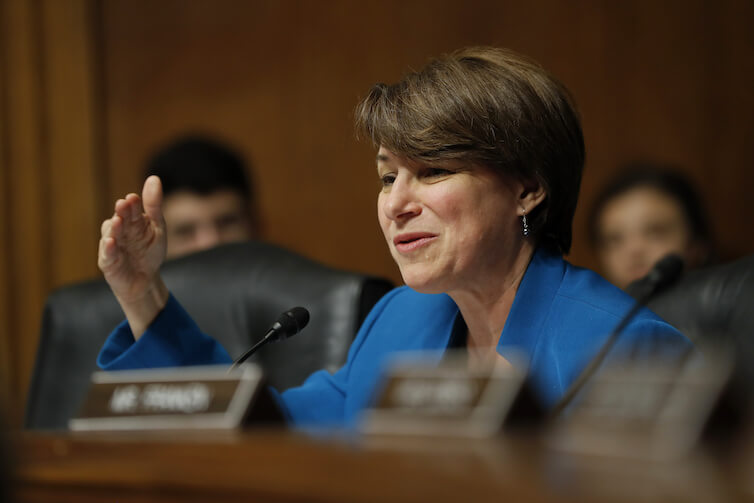New federal antitrust legislation recognizes U.S. workers are not only consumers

The introduction of two new antitrust bills by Sen. Amy Klobuchar, D-MN, last week indicates that Democrats are serious about making antitrust enforcement a central plank in their economic policy platform. In July, congressional Democrats released “A Better Deal,” intended to be the jumping off point for their policy agenda for the 2018 elections, and antitrust was a major plank. Sen. Klobuchar’s bills would implement many of the antitrust policy issues highlighted in “A Better Deal.”
The increased interest in issues of competition and antitrust enforcement on the policy side is matched by that on the research side. As examples of market concentration mount, researchers are increasingly asking whether any number of the economic ills we’re experiencing—from the rise in inequality to decreased business investment, stagnant wages for less-educated workers, and the decline in startups—are perhaps all related to one underlying cause: the growth in market power of a small handful of “superstar” firms in their fields.
Equitable Growth has done a lot of work on the subject of competition and antitrust recently, including analyses of some of the most recent research on the subject, as well as a case study of the telecommunications industry and data analysis of merger enforcement actions. A critical question is what the relationship is between companies’ market power and inequality. There seem to be multiple channels through which greater market power and lower competition could increase economic inequality. While antitrust issues have generally been viewed from a consumer perspective over the past 30 years, focusing on the consumer price effects of mergers, this emphasis on whether sellers create monopolies for their products ignores that buyers can also create a monopsonic market for the prices they pay.
A monopsonic market is one in which a buyer of a good or service has the power to pay lower prices than he or she would have to in a competitive market. In the case of a labor market, monopsony refers to a firm or firms’ ability to restrict wages below what they would be in a competitive market. If an increasingly smaller handful of firms are dominating their industries, then they have fewer competing buyers for labor. The classic and most extreme example of this phenomenon is the “company town,” in which there is only one employer and therefore workers are easily exploited. Of course, that rarely happens today—though companies do have varying degrees of monopsonic power.
The Clayton Act of 1914—one of the foundational antitrust laws in the United States—bans mergers that would create a monopoly, but there is no explicit reference to monopsony. Sen. Klobuchar’s Consolidation Prevention and Competition Promotion Act of 2017 proposes to make explicit that monopsony should be treated the same way. By incorporating monopsony into Clayton’s legislative language, mergers that allow a company to unfairly lower the prices it pays its employees or suppliers would not be allowed.
The explicit incorporation of monopsony into an existing statute is an example of one of the central tensions in the debate among think tank scholars, policymakers, and federal antitrust enforcers. The question is whether policymakers already have the proper antitrust tools they need and just need to enforce them more strenuously, or whether new companies and business models in the 21st century economy demand new tools. Sen. Klobuchar’s bills seem to take a “both/and” approach, calling for greater resources for our existing enforcement agencies, as well as the creation of new antitrust tools. These tools include the explicit incorporation of “monopsony” into the Clayton Act’s text, as well as the creation of a new Office of the Competition Advocate along the lines of the Consumer Financial Protection Bureau.
More work is needed to understand how either updated or new antitrust policies could be implemented and might play out in the economy. That’s why Equitable Growth is proud to announce that we’re partnering with American University’s Washington College of Law to host an event on October 27, 2017, in Washington, D.C. “Unlocking the Promise of Antitrust Enforcement” will feature presentations by leading scholars in antitrust law and economics, along with discussion by prominent antitrust practitioners to explore whether there is scope for more vigorous enforcement of existing law. You can can register to attend and learn more here.
